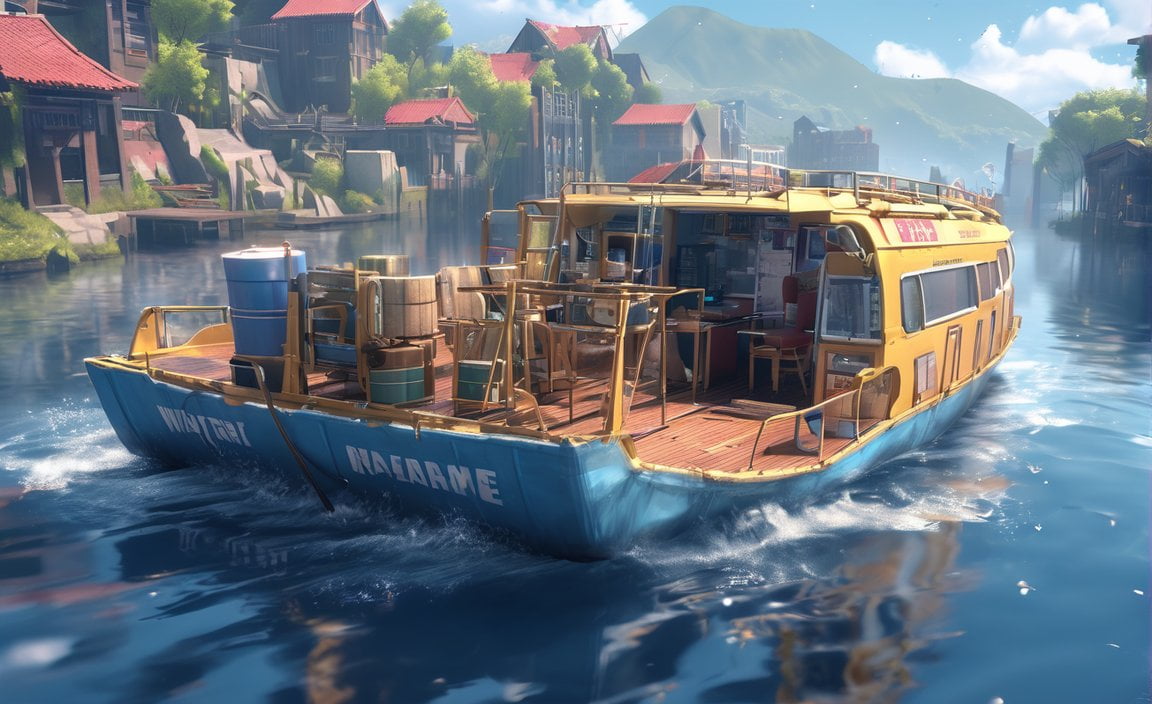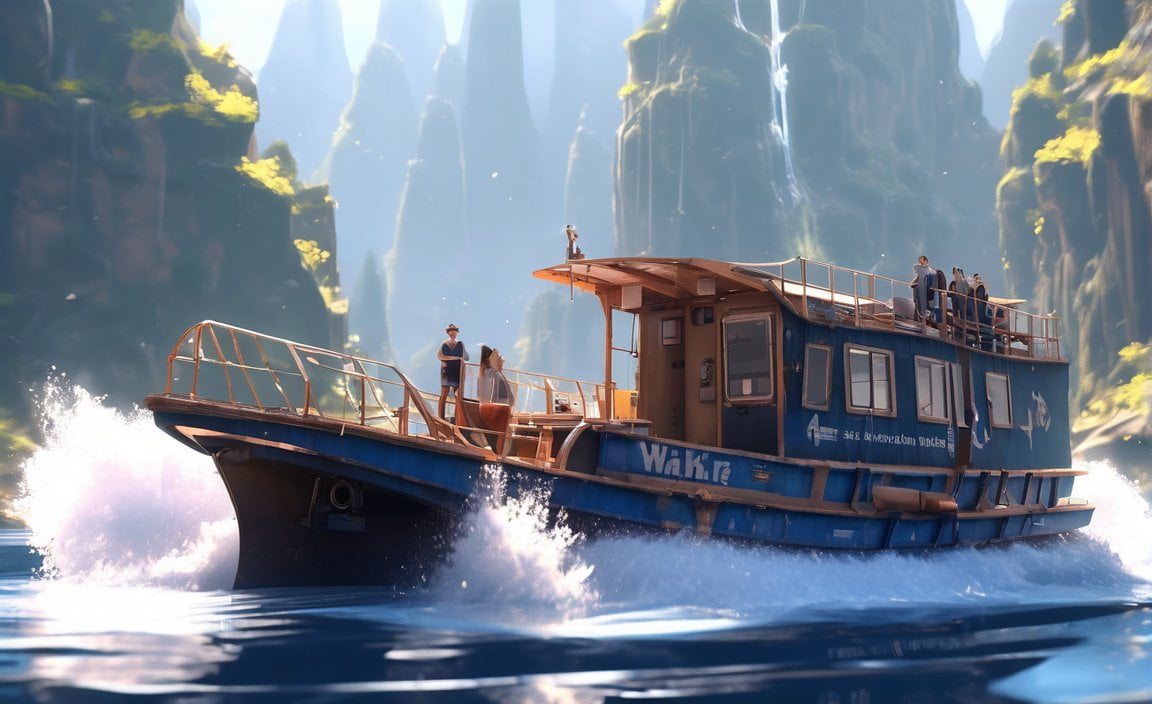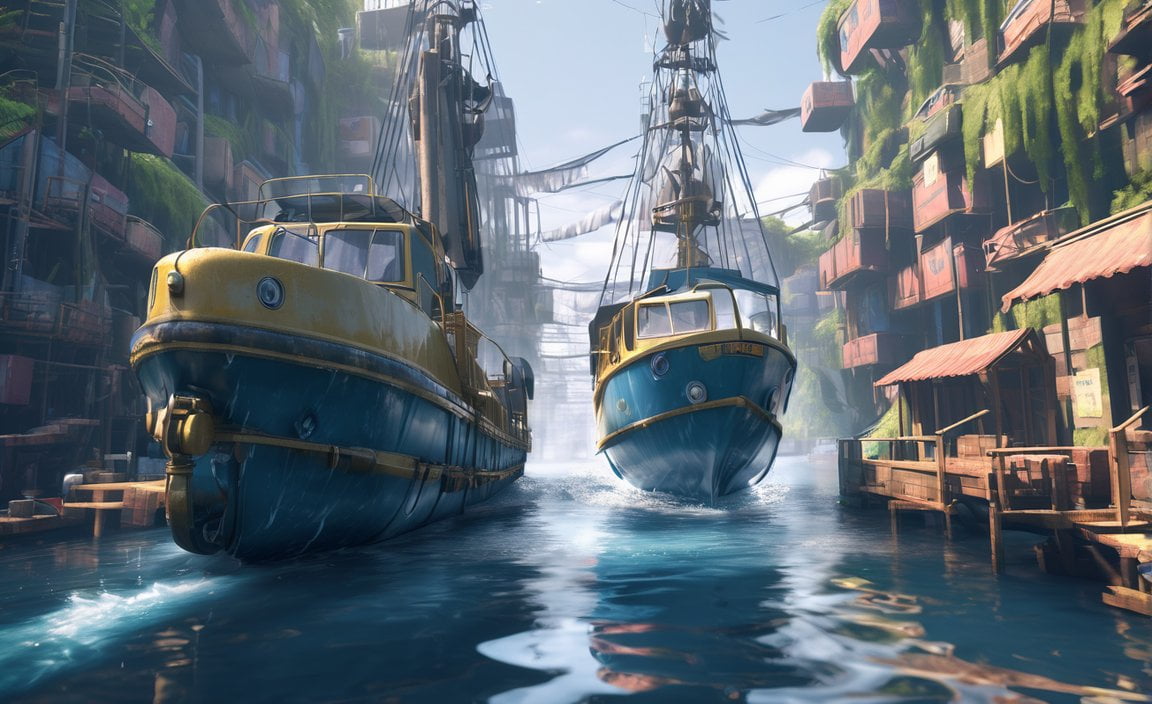Water transportation, while often lauded for its numerous benefits, is not without its drawbacks. In this article, we will explore the disadvantages of water transportation and shed light on 5 key areas where this mode of transport falls short. From cost inefficiencies to safety concerns and environmental impact, we will delve into the various challenges faced by the water transportation industry. By understanding these drawbacks, professionals in logistics and supply chain management can make informed decisions about the most suitable transportation mode for their specific needs. So, let’s dive into the drawbacks of water transportation and uncover the complexities lying beneath the calm surface.
Key Takeaways:
- Navigation difficulties during monsoons can make it challenging for ships to navigate safely.
- The fear of ships sinking due to natural disasters or accidents is a constant concern in water transportation.
- Water transport is generally slower compared to road or air transportation, which may not be suitable for time-sensitive deliveries.
- Water transportation is less accessible and practical for small businesses as it requires significant infrastructure and resources.
- Loading and unloading goods in specific places due to differences in water depth and volume can add complexity and logistical challenges to supply chains.
5 Disadvantages of Water Transportation

Navigation Challenges During Monsoons
One of the significant disadvantages of water transportation is the difficulty faced during the monsoon season. Heavy rain, strong winds, and rough seas make it challenging for ships to navigate safely. The unpredictable nature of the weather during this period creates a high-risk environment for ships and their passengers.
Concerns About Ship Sinking
The fear of ships sinking is always a concern in water transportation. Natural disasters, accidents, or unforeseen circumstances can pose a significant risk to the safety of ships and their cargo. This fear creates uncertainty for both passengers and businesses relying on water transportation.
Slower Speed Compared to Other Modes of Transport
Water transport is generally slower compared to road or air transportation. This slower speed can be a disadvantage for time-sensitive deliveries, as it may not meet the required delivery deadlines. If urgency is a priority, alternatives like air or road transport may be more suitable options.
Limited Suitability for Small Businesses
Water transportation tends to involve large-scale operations that require substantial infrastructure and resources. This limitation makes it less accessible and practical for small businesses. The costs and complexities involved in managing water transport logistics often pose significant barriers for smaller enterprises.
Challenges with Loading and Unloading Goods at Specific Places
Another drawback of water transportation is the need to load and unload goods at specific ports or locations. This requirement stems from variations in water body depths and volumes. As a result, supply chains may encounter logistical challenges when it comes to efficiently moving goods. The added complexity of determining suitable loading and unloading points can impact the overall efficiency of transportation operations.
In conclusion, while water transportation offers certain advantages, it also presents several disadvantages. Difficulties during monsoons, concerns about ship sinking, slow speed, limited suitability for small businesses, and challenges in loading and unloading goods at specific places are key drawbacks of water transportation. To overcome these disadvantages, businesses and individuals must carefully evaluate their transportation needs and consider alternative modes of transport when necessary.
| Disadvantage | Description |
|---|---|
| Navigation Challenges During Monsoons | Heavy rain, strong winds, and rough seas make safe navigation difficult during the monsoon season. |
| Concerns About Ship Sinking | The risk of ships sinking due to natural disasters or unforeseen circumstances adds to concerns about safety. |
| Slower Speed Compared to Other Modes of Transport | Water transport is generally slower, making it less suitable for time-sensitive deliveries. |
| Limited Suitability for Small Businesses | Large-scale operations and infrastructure requirements make water transportation less accessible for small businesses. |
| Challenges with Loading and Unloading Goods at Specific Places | Loading and unloading goods must often be done at specific ports or locations due to variations in water depth and volume. |
Sources:
– Five advantages and disadvantages of water transport by BYJU’s
– Advantages and Disadvantages of Water Transportation by Navata
Did you know that hydroelectric power is a renewable source of energy? Discover the 5 fascinating facts about hydroelectric power that will leave you amazed! 5 facts about hydroelectric power
Hydropower, also known as water power, is a significant source of renewable energy. Uncover the 5 interesting facts about hydropower that will surely impress you! 5 facts about hydropower
Advantages and Disadvantages of Water Transportation

Water transport, with its ability to move people and goods across oceans, lakes, canals, and rivers, offers both advantages and disadvantages. In this article, we will explore these pros and cons and gain an understanding of the drawbacks of water transportation.
Advantages of Water Transport
Water transport has several advantages that make it a popular choice in various situations. Let’s take a look at some of these advantages:
Cost-effectiveness: One of the significant advantages of water transport is its cost-effectiveness. Ships have the capacity to transport large and heavy items in bulk, making it an economical option for businesses involved in the shipping of goods.
Environmental friendliness: Water transportation is known for its lower carbon emissions compared to other modes of transport such as air or road travel. By choosing water transport, we contribute to reducing air pollution and preserving the environment.
Reliability in adverse conditions: Ships are designed to withstand challenging weather conditions, making them more reliable in adverse situations. Unlike other modes of transportation, water transport is less likely to experience weather-related delays, ensuring a smoother and predictable transportation process.
Expanded accessibility: Water transport provides access to remote areas that may not have well-developed road or rail infrastructure. By utilizing water transport, we can ensure that goods reach even the most secluded areas, thereby enhancing accessibility and fostering economic growth.
Now that we have explored the advantages, let’s delve into the disadvantages of water transportation.
Disadvantages of Water Transport
While water transport has its benefits, it is essential to consider the drawbacks before making any transportation decisions. Here are some of the key disadvantages:
Slowness: One of the main drawbacks of water transport is its slower speed compared to other modes of transportation. For time-sensitive deliveries or urgent shipments, water transport may not be the most suitable option due to longer travel times.
Cost implications: Water transport can be costly, especially for long-distance travel. Additional expenses such as port charges, customs duties, and insurance can significantly add to the overall cost of shipping goods by water.
Seasickness: Traveling by boat can be challenging for individuals who are prone to motion sickness or have difficulty adapting to the rocking motion of a vessel. Seasickness can affect both passengers and crew members, potentially causing discomfort and inconvenience during the journey.
Weather and storms: Water transport is susceptible to adverse weather conditions and storms. Inclement weather can disrupt ship schedules, leading to delays in the delivery of goods and hampering overall logistics operations.
Impracticality: In certain cases, water transport may not be a practical or feasible option. For instance, when transporting goods to landlocked areas or locations without access to navigable water bodies, other modes of transport like road or rail may be more suitable and efficient.
Despite these disadvantages, water transportation continues to be a valuable mode of transport due to its cost-effectiveness, environmental friendliness, reliability in adverse conditions, and expanded accessibility. However, it is crucial to consider factors such as speed, costs, seasickness, weather disruptions, and practicality when choosing water transport as a mode of transportation.
Key Takeaways:
- Water transport offers cost-effectiveness, environmental friendliness, reliability in adverse conditions, and expanded accessibility.
- Drawbacks of water transportation include slower speed, cost implications, seasickness, weather disruptions, and limitations in practicality.
- It is crucial to consider factors such as speed, costs, seasickness, weather disruptions, and practicality when opting for water transport.
Sources:
– Navata Road Transport’s article on Advantages and Disadvantages of Water Transportation
– Sugam Group’s insights on Advantages and Disadvantages of Water Transportation
FAQ
Q1: What are the disadvantages of water transportation?
A1: The disadvantages of water transportation include difficulties during monsoons, concerns about ship sinking, slow speed, limited suitability for small businesses, and challenges related to loading and unloading goods at specific places.
Q2: Is water transportation slower compared to other modes of transportation?
A2: Yes, water transportation is generally slower than road or air transport. It may not be suitable for time-sensitive deliveries.
Q3: Why is water transportation not suitable for small businesses?
A3: Water transportation typically requires significant infrastructure and resources, which may make it less accessible and practical for small businesses.
Q4: What challenges are associated with loading and unloading goods in water transportation?
A4: Depending on the water body and its depth, goods may need to be loaded and unloaded at specific ports or locations, adding complexity and logistical challenges to supply chains.
Q5: Are there safety concerns related to water transportation?
A5: Yes, the fear of ships sinking due to natural disasters, accidents, or other unforeseen circumstances is always a concern in water transportation.















